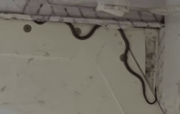'Old-school' discipline is back? Parents share thoughts on classroom guidelines
By
Seia Ibanez
- Replies 36
The debate over classroom discipline is as old as the chalkboard itself, but in Australia, it's heating up once again.
A recent senate inquiry into classroom behaviours has sparked a fiery conversation among parents, educators, and experts about the potential return of 'old-school' discipline methods to combat unruly student behaviour.
The inquiry's recommendations distributed to schools nationwide suggested a revival of traditional classroom management techniques.
These include teaching students the basics of classroom etiquette, such as how to enter a room, sit properly, and engage with teachers respectfully.

The layout of classrooms is also under scrutiny, with a push to return desks to neat rows facing the teacher.
One of the more novel concepts introduced is 'super walking', a practice where students walk in single file around the school.
The debate has divided parents and educators. Some argued that discipline begins at home and that parents should be the ones to instil these values in their children.
This discussion follows research by the Australian Education Research Organisation (AERO), which found that teachers spend a significant portion of their day, up to 20 percent, managing disruptive behaviour rather than teaching.
Dr Jenny Donavan, CEO of AERO, insisted that students need to be explicitly taught how to behave and that these skills should be consistently practised throughout their schooling to maintain high standards of conduct.
AERO’s proposed changes, while available to all Australian states, leave the implementation to the discretion of individual teachers and schools.
Former principal Adam Voigt discussed the issue and described it as a ‘complex problem’.
Voigt emphasised the need for consistency across schools to prevent teachers from leaving the profession.
He also cautioned against simplistic solutions like the 'red card' approach, which involves sending misbehaving students directly to the principal's office.
He suggested that the answers may lie in a blend of past and present methods rather than a complete reversion to 'the old days'.
The sentiment among some parents is clear, with one saying, 'I think you need to cane the parents, to be honest. That's where it is at for me. Kids are a product of their mum and dad or their parents...discipline starts at home.'
Another parent added, 'They need to be taught to listen and learn to take direction. Just no respect (in the classroom). That's the biggest problem.'
 Do you believe returning to 'old-school' discipline is the key to solving classroom management issues? Let us know your thoughts in the comments below!
Do you believe returning to 'old-school' discipline is the key to solving classroom management issues? Let us know your thoughts in the comments below!
A recent senate inquiry into classroom behaviours has sparked a fiery conversation among parents, educators, and experts about the potential return of 'old-school' discipline methods to combat unruly student behaviour.
The inquiry's recommendations distributed to schools nationwide suggested a revival of traditional classroom management techniques.
These include teaching students the basics of classroom etiquette, such as how to enter a room, sit properly, and engage with teachers respectfully.

The potential return of ‘old-school’ discipline sparked discussion between parents. Credit: Shutterstock
The layout of classrooms is also under scrutiny, with a push to return desks to neat rows facing the teacher.
One of the more novel concepts introduced is 'super walking', a practice where students walk in single file around the school.
The debate has divided parents and educators. Some argued that discipline begins at home and that parents should be the ones to instil these values in their children.
This discussion follows research by the Australian Education Research Organisation (AERO), which found that teachers spend a significant portion of their day, up to 20 percent, managing disruptive behaviour rather than teaching.
Dr Jenny Donavan, CEO of AERO, insisted that students need to be explicitly taught how to behave and that these skills should be consistently practised throughout their schooling to maintain high standards of conduct.
AERO’s proposed changes, while available to all Australian states, leave the implementation to the discretion of individual teachers and schools.
Former principal Adam Voigt discussed the issue and described it as a ‘complex problem’.
Voigt emphasised the need for consistency across schools to prevent teachers from leaving the profession.
He also cautioned against simplistic solutions like the 'red card' approach, which involves sending misbehaving students directly to the principal's office.
He suggested that the answers may lie in a blend of past and present methods rather than a complete reversion to 'the old days'.
The sentiment among some parents is clear, with one saying, 'I think you need to cane the parents, to be honest. That's where it is at for me. Kids are a product of their mum and dad or their parents...discipline starts at home.'
Another parent added, 'They need to be taught to listen and learn to take direction. Just no respect (in the classroom). That's the biggest problem.'
Key Takeaways
- There is an ongoing debate among Australian parents, scholars, and teachers about reintroducing 'old-school' discipline tactics in classrooms to curb disruptive behaviour.
- A senate inquiry has recommended a return to traditional discipline methods in schools, such as teaching students how to enter a classroom, sit, and ask questions, alongside practices like 'super walking'.
- The Australian Education Research Organisation (AERO) found that teachers lose 20 per cent of their day managing disruptive students, highlighting the need for explicit behaviour education.
- Some argued that discipline begins at home, while others suggested that consistent and explicit teaching of classroom behaviours could help maintain high standards and prevent teacher attrition.







